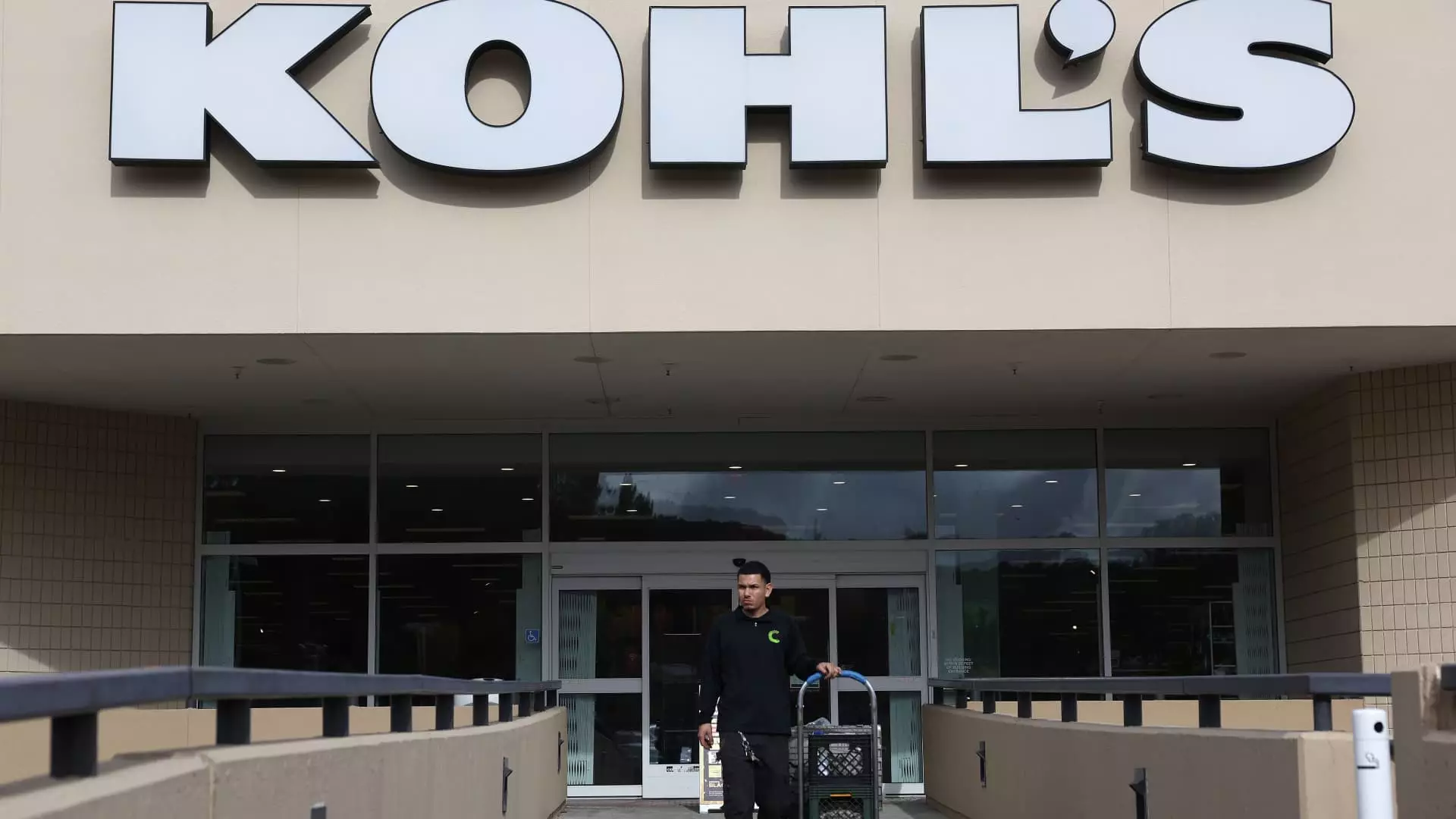On the surface, Kohl’s appeared to have put forth a commendable performance during the fiscal fourth quarter, boasting earnings and revenue that surpassed analyst expectations. Yet, confounding the anticipated positive sentiment, the company’s stock plummeted by more than 20%. This paradox serves as a haunting reminder that success in one quarter can be swiftly overshadowed by pessimistic forecasts and the unsettling realities of retail dynamics. As we dissect the recent performance and statements from Kohl’s leadership, it becomes evident that a deeper malaise runs through its corporate veins, threatening to derail its once solid foundation.
Misguided Strategies: The Self-Inflicted Wounds
CEO Ashley Buchanan, who inherited the company at a tumultuous time, delivered a stark admission: Kohl’s has wandered too far from its core strengths. By aggressively pursuing new product categories while neglecting their traditional offerings—such as fine jewelry and proprietary brands—Kohl’s has arguably inflicted harm upon itself. This pivot away from core products not only confused long-time customers but also alienated them, creating a chasm between what the retailer offered and what its loyal clientele truly wanted. Buchanan’s acknowledgment that decisions from the past have resulted in this turmoil highlights a critical disconnect between corporate strategy and consumer expectations. It’s a stark reminder that in retail, as in life, chasing trends can obscure the tried-and-true paths that once led to success.
The Dismal Forecast: Realities of a Shifting Market
Kohl’s grim guidance for the upcoming fiscal year is alarming. The company anticipates revenue will decline by 5% to 7%, a stark contrast to Wall Street’s more optimistic estimate of a mere 1.6% decrease. This disparity indicates a profound disconnect between expectations and the reality of consumer behavior, especially among lower-income shoppers who are becoming increasingly value-conscious amid rising inflation. In an era where discretionary spending is under scrutiny, Kohl’s must confront the uncomfortable truth that their conventional market strategies may no longer resonate in the current economic climate.
Furthermore, the projection of adjusted earnings per share between 10 to 60 cents, against a midpoint estimate from analysts of $1.23, underscores a broader trend of declining profitability. This troubling forecast casts a long shadow over the company’s future, particularly when set alongside weaker-than-expected performance metrics from other retailers such as Dick’s Sporting Goods.
Brand Loyalty in Jeopardy
Despite Buchanan’s claim that Kohl’s enjoys a “very loyal customer base,” the evidence suggests this loyalty is being tested. The issues of disconnected marketing strategies and a lack of communication regarding coupon exclusions have evidently frustrated customers, creating confusion that drives them away instead of welcoming them in. It’s perplexing that a retailer with a legacy built on customer-centric values could so easily tread into dangerous territory. The fact that these strategic missteps have become internalized trends raises serious questions about the company’s future direction and leadership integrity.
Buchanan’s efforts to partially reverse the exclusions signify a recognition of the growing chasm between Kohl’s and its clients. However, such half-measures may already be too late to salvage customer trust. The importance of addressing consumer needs above corporate pursuits cannot be overstated; neglecting this principle can rapidly unravel brand loyalty.
The Broader Economic Context: A Retail Apocalypse?
The retail environment is fraught with challenges, and Kohl’s is no exception. The combination of declining consumer confidence, the aftereffects of President Trump’s tariff policies, and stagnant job growth creates an economic minefield for retailers. Kohl’s net sales fell from $5.71 billion in the fourth quarter of 2023 to just $5.18 billion in the same quarter of fiscal 2024, underscoring the dire impact of external pressures.
As other retailers already sound alarms about turbulent economic forecasts for the impending years, Kohl’s must grapple with the urgency of reevaluating not only its internal practices but also its external relationships. The looming recession, while worrisome, may offer Kohl’s a pivotal inflection point—an opportunity to fundamentally reimagine their retail strategy in a rapidly evolving market.
In analyzing Kohl’s current state, it’s clear the retailer finds itself at a crossroads. Faced with self-imposed constraints and broader market challenges, the path forward will require fortitude and innovation. To thrive in an uncertain climate, the company will need to reconnect with its customer base, reestablish a robust identity founded on its core strengths, and embrace an adaptive strategy that responds to market demands. The clock is ticking, and the movement toward change must begin now to rectify the alarming trajectory that currently defines Kohl’s.



Leave a Reply